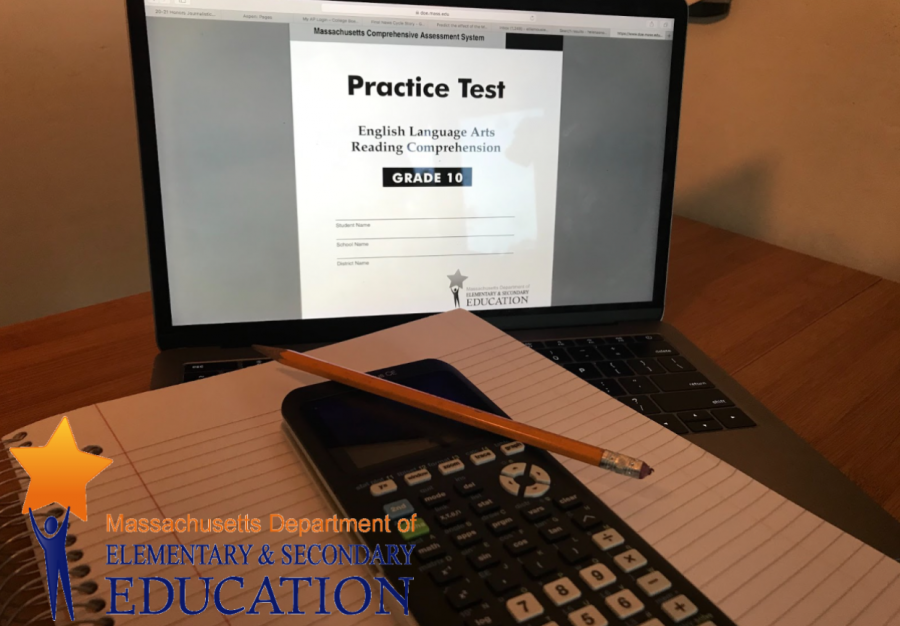Pandemic Impacts MCAS Mindset
June 9, 2021
This year, students at SHS were surprised to learn MCAS testing was optional for the Class of 2022. The subsequent lack of juniors who participated in MCAS testing served as a reminder that standardized assessments are only one measure of student achievement. Concerns arose as to whether students in their junior year were aware of the academic and financial benefits that follow strong MCAS results, or better yet, whether students possessed the mental capacity to bother with the whole process.
SHS junior Molly Thompson jumped at the opportunity to dodge this year’s optional MCAS testing. Like most students at SHS, particularly those navigating the notoriously treacherous junior curriculum, Thompson is wholeheartedly exhausted after a year of dedication to academic prosperity. With SATs and AP exams at her doorstep, an additional standardized test was simply not an option. The soon-to-be senior was also confident she would not score high enough to gain any sort of prestige or financial reward from her participation, and this, along with her disdain for standardized tests in general, fueled her absence when optional MCAS testing was offered. According to Thompson, standardized tests are “incredibly draining and taking so much concentration.”
Nevertheless, this year, several industrious juniors, including Lisette Adorney, saw a positive outcome associated with MCAS testing. Having recently completed both English and math MCAS, Adorney saw the potential financial gains as grounds to participate: “There are great scholarships you can receive through MCAS, and you don’t have to pay to take the test, which is also nice.” Adorney said she felt very little pressure or encouragement from teachers or administrators to participate and instead looked to friends, family, and individual teachers for guidance.
Even with this diverse perspective from the SHS student body, educators and teachers of Scituate High have proven their incredible support and consideration of students’ needs throughout the testing season. Teachers and students alike are on their last limb when it comes to surviving the academic year, and the constant anxiety and paranoia of the pandemic has only heightened these feelings of distress. Yet, with this common struggle, unity has been cultivated between the staff-student dynamic.
SHS English teacher Courtney Hayden exemplifies this bridge between student-to-faculty relationships, as she modestly emphasized her understanding of the juniors’ situation this year. Though Hayden would usually encourage student participation in the ELA MCAS, this spring, she remained more passive in her rallying for testing involvement. Instead, Hayden sympathized with student fatigue and left the decision about optional testing up to her students.
With the majority of juniors opting out of MCAS this year, perhaps a primary change to consider is scheduling MCAS testing earlier in the school year. Realigning the system for an earlier MCAS testing date could be especially beneficial to freshmen, who took this year’s science exam during a brutal June heatwave.
With the end of the pandemic restrictions, education officials have an opportunity to review the goals and expectations that are guiding their decisions regarding MCAS testing. With the best interest of students at heart, officials should consider reforms to the testing timeline.
